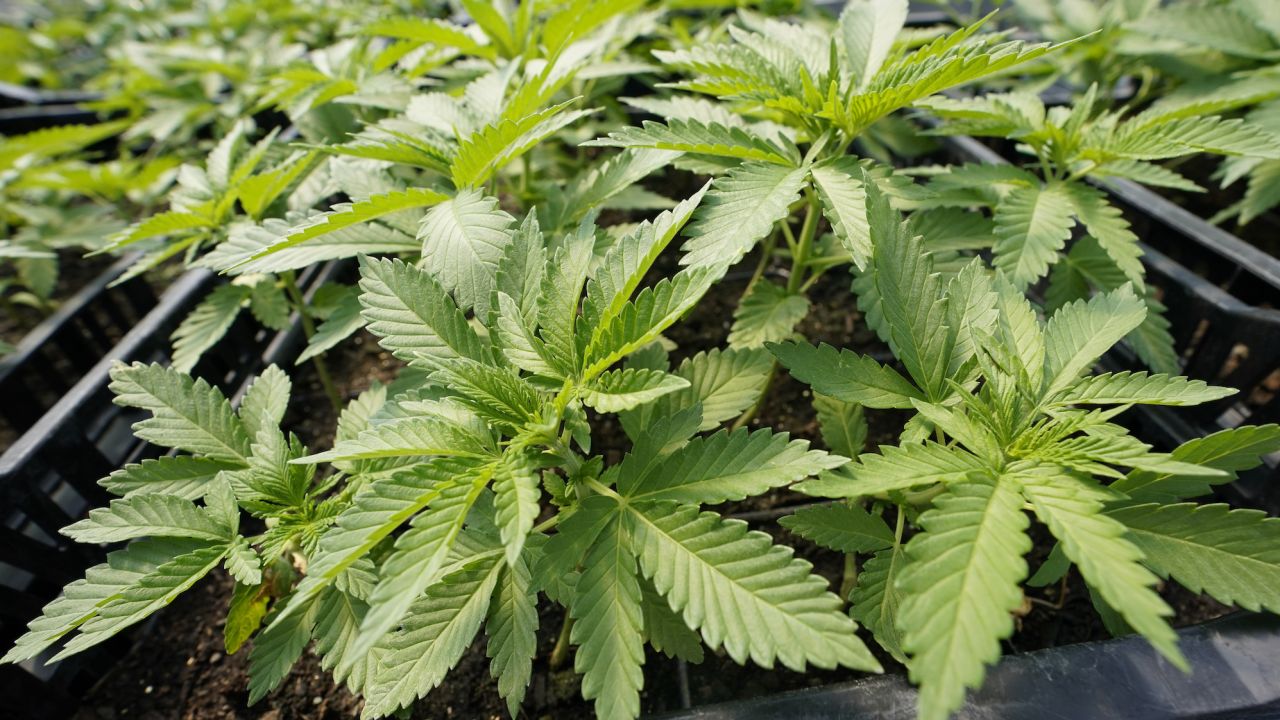Washington (Trends Wide) —Marijuana legalization will be on the ballot in Arkansas, Maryland, Missouri, North Dakota and South Dakota next week, reflecting the growing push across the country to lift penalties once associated with the drug.
If approved, these states will join the 19 (along with the city of Washington) where recreational use is currently legal. Thirty-seven states, three territories and the city of Washington allow the medical use of marijuana products, according to the National Conference of State Legislatures.
Medical marijuana is currently legal in each of the five states that will vote on recreational use this month.
Arkansas
A constitutional amendment known as Question 4 would allow the possession and use of cannabis by adults, as well as the sale by licensed facilities. It would allow the possession of cannabis up to one ounce (28 grams) and some tax revenue would help fund law enforcement.
Melissa Fults, a board member for the Arkansas chapter of the National Organization for the Reform of Marijuana Laws (NORML), has expressed dismay at the proposed amendment because she says it would create a ” huge monopoly” for Arkansas growers and retailers. The initiative would create 12 additional growing facility licenses and a lottery for 40 additional adult-use dispensary licenses to be added to the 80 that will be given to existing medical dispensaries.
He also criticized the lack of a way for people who have been convicted of marijuana-related crimes to expunge their criminal records.
“It was written by growers, paid for by growers and only benefits growers. It will hurt patients, consumers and Arkansans,” Fults told Trends Wide. “If it passes, it will be the worst and most expensive marijuana program in the nation.”
The Family Council Action Committee, which is often on the opposite side of NORML when it comes to relaxing marijuana laws, also raised concerns about the proposed regulation.
“If Question 4 passes, Arkansas will have one of the least regulated cannabis industries in the United States,” Jerry Cox, executive director of the Family Council Action Committee, told Trends Wide. “State and local officials will be powerless to restrict marijuana or raise taxes on it. A handful of businesses and bureaucrats will control marijuana in Arkansas. That’s a recipe for disaster.”
If approved, the legalization would take effect on March 8, 2023.
Maryland
A proposed constitutional amendment in Maryland, Question 4, will give voters the opportunity to legalize recreational marijuana for people 21 and older. If passed, it would take effect on July 1, 2023 and would allow possession of 1.5 ounces (42 grams) or two plants.
It would also allow those previously convicted of cannabis possession and attempted distribution to request expungement.
“For decades, overly restrictive cannabis laws have been a gateway to prison that have disproportionately affected people of color. Legalizing recreational cannabis in Maryland puts us on a path to reform our outdated drug laws and create more fairness in our justice system,” Maryland House Speaker Adrienne Jones, a Democrat, told Trends Wide. “Our views and research on cannabis have changed; federal laws have changed. It’s time our policies did the same.”
Possession of small amounts of marijuana is already decriminalized in Maryland.
Missouri
A proposed constitutional amendment in Missouri will give voters the option to end the state’s marijuana bans and allow personal use for those 21 and older.
It would allow personal possession of up to three ounces (85 grams).
The amendment would also allow people with nonviolent marijuana-related offenses to apply for release from prison or parole and probation and have their records expunged. The amendment prohibits marijuana establishments from selling cannabis-infused products shaped or packaged like candy that may be attractive to children.
Amendment 3 would also impose a 6% tax on the sales price of recreational marijuana. The language of the amendment says it will not allow the use of marijuana while operating a motor vehicle or “undertaking any task while under the influence of marijuana when doing so would constitute negligence or professional malpractice.”
If approved, it would take effect 30 days after the election.
North Dakota
A citizen-initiated ballot measure in North Dakota would allow marijuana use in “various forms” for those 21 and older, if it passes.
The petition also states that all cannabis will be tested at a facility “to check the potency of products and the presence of pesticides” and that cannabis businesses will be subject to random inspections.
It would allow the possession of cannabis up to one ounce (28 grams).
North Dakota voters previously rejected a 2018 ballot measure that sought to fully legalize marijuana.
If passed, it would become law 30 days after the election.
Dakota del Sur
Marijuana legalization is back on the ballot in South Dakota after state courts overturned the results of the 2020 legalization ballot measure.
Measure 27 would legalize the possession, use and distribution of marijuana, according to the ballot measure. If approved, possession of marijuana up to one ounce (28 grams) would be legal. It would also legalize the possession of marijuana paraphernalia.
South Dakota Governor Kristi Noem, a Republican whose office has previously defended the nullification process on the basis of constitutionality, told Trends Wide that if Measure 27 passes again, she would implement it.
If approved, it would take effect on July 1, 2023.
A federal push for decriminalization
Marijuana use is illegal under federal law, even as some states have moved toward legal use for recreational and medical purposes.
But in October, the Biden administration announced that the president had pardoned all people convicted of marijuana possession at the federal level through executive action.
“No one should be in jail just for using or possessing marijuana,” Biden said then, while encouraging governors to take similar steps to pardon state charges of simple marijuana possession.
Biden also tasked the Department of Health and Human Services and Attorney General Merrick Garland to “promptly” review how marijuana is classified in federal law, the first step toward softening its federal classification.
Under the Controlled Substances Act of 1970, marijuana is listed on Schedule 1, with drugs like heroin and LSD, meaning it “has no currently accepted medical use and has a high potential for abuse.” But in recent years, its medicinal benefits have been more recognized.






